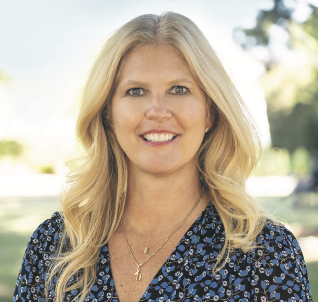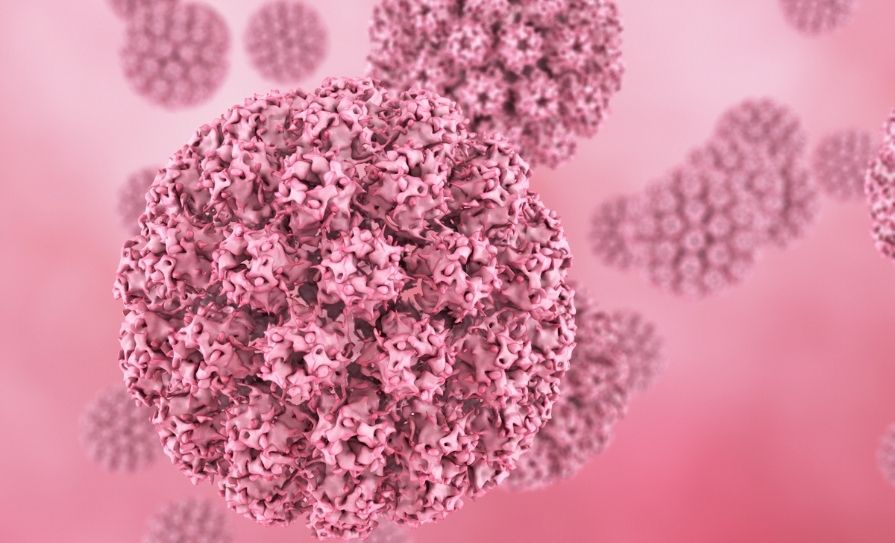We must develop and recognise genetic counsellor services to realise the potential of personalised medicine

November 14 was Genetic Counsellor Awareness Day in Ireland and around the world. It’s important to note that it is an ‘awareness’ day rather than an ‘appreciation’ day because genetic counselling is still an under-recognised field. Genetic counsellors are healthcare professionals who provide information and support to families and individuals who are at risk for or affected by a genetic condition. We have specialised training in medical genetics and counselling. Despite having arisen around the same time as physician assistants (circa 1970), there are far fewer genetic counsellors, and the public is less aware of this career. Indeed, genetic counselling is not officially recognised by the HSE or by the Centres for Medicare and Medicaid Services in the US. This is challenging because it restricts access to genetic services. It also limits our ability to be reimbursed for our services, which in turn makes hospitals less eager to hire genetic counsellors.
However, the discovery of many genes that can lead to common adulthood conditions, such as cancer, heart disease, and neurological disease means that a large percentage of the population may need to see a genetic counsellor at some point in their lifetime. Genetic counsellors are trained to provide risk assessments, genetic testing when indicated, and personalised management recommendations for individuals who have a personal or family history of one of these conditions.
I have worked in cancer genetics since 1995; right between the discovery of the BRCA1 and BRCA2 genes, which are responsible for hereditary breast-ovarian cancer syndrome. At that time, testing was restricted to patients with very strong personal and family histories of cancer because it was costly (>$2,500) and it was not clear that management could improve outcomes.
Thirty years later, there are now over 25 genes known to cause an increased risk for breast and ovarian cancer, many of these genes have also been linked to prostate, pancreatic, and other cancers, and testing is available for large panels of genes at a much lower cost (many US labs offer patient self-pay prices of around $250). This has led professional organisations to increase the number of patients for whom genetic testing is recommended to include anyone with ovarian, pancreatic, triple-negative breast, or metastatic/high grade prostate cancer (regardless of age or family history), and anyone with breast cancer diagnosed under age 50. There are many other inherited cancer syndromes as well, including Lynch syndrome which is the most common (hereditary) cause of colorectal and endometrial cancers. Guidelines recommend testing for anyone with either of these cancers diagnosed under age 50. Individuals without cancer may also qualify for genetic counselling and testing if they have a family history of early-onset cancer or multiple cases of cancer. The benefits of genetic testing for hereditary cancer syndromes include: 1) potential changes in cancer therapy targeting the underlying genetic cause of the cancer; and 2) the ability to provide intensive cancer surveillance and prevention to high-risk individuals so that they can prevent cancers entirely or catch them earlier when treatment is the most successful.
Recently, there has been a move to further increase access to genetic testing through point-of-service testing (also called mainstreaming) for all cancer patients
Recently, there has been a move to further increase access to genetic testing through point-of-service testing (also called mainstreaming) for all cancer patients. In this model, every cancer patient is offered genetic testing typically in the oncologist’s office with pre-test informed consent instead of full pre-test genetic counselling. Then, genetic counsellors are involved in the results disclosure process utilising letters for patients with no actionable findings and providing full post-test genetic counselling for anyone found to have hereditary cancer syndrome. We have recently completed testing for >20,000 patients at City of Hope using this model. Despite removing the need for pre-test genetic counselling, this still increased our need for genetic counsellors as we had to handle all these result disclosures. With around 15 per cent of the patients testing positive, that meant 5,000 patients got result phone calls and referrals for post-test genetic counselling sessions. We have 17 cancer genetic counsellors and two genetic counselling assistants at City of Hope to handle this volume. In contrast, there are five cancer genetic counsellors at St James’s Hospital in Dublin.
Increased demand
Increased demand for genetic testing means increased need for genetic counsellors, but there may not be enough of us to provide services for everyone who needs them. Ireland’s National Cancer Control Programme developed a Hereditary Cancer Model of Care in April 2023, which is visionary but acknowledges that hereditary cancer services in Ireland are underdeveloped and under-resourced to meet the rapid growth in service demand. We are facing similar challenges in the US even though we now have 58 accredited genetic counselling training programmes.
There are no genetic counselling training programmes in Ireland to help serve as a pipeline to develop these uniquely-trained healthcare providers. The good news is that there is a lot of interest and enthusiasm for the field. The US News Best Jobs Report ranked genetic counselling second as the best healthcare support job in 2023 and 14th in the top 100 jobs overall. The US Bureau of Labour Statistics projects employment to grow 16 per cent from 2023 to 2033, which is much faster than the average for all occupations. If we want to fully realise the potential of personalised medicine, we will have to develop and recognise genetic counsellors so that in the future, we might celebrate Genetic Counsellor Appreciation Day instead of Awareness Day.
Author: Prof Heather Hampel, Department of Medical Oncology and Therapeutics Research, and Associate Director, Division of Clinical Cancer Genomics, City of Hope National Cancer Centre, California, US
Prof Heather Hampel was a keynote speaker at the Inaugural Cancer Genetic Counselling Conference Day on 14 November. The conference was hosted by the cancer genetic service at St James’s Hospital, Dublin, in conjunction with Trinity College Dublin. Dr Rosie O’Shea, Principal Genetic Counsellor of the cancer genetic service at St James’s, said they were delighted to have Prof Hampel speak at the conference. “She is an internationally- renowned genetic counsellor who has contributed hugely to the field of cancer genetic counselling and shows the significance of the profession in improving outcomes for hereditary cancer patients.”
Dr O’Shea said the St James’s cancer genetic service welcomed Minister for Health Stephen Donnelly’s announcement of funding to implement the Hereditary Cancer Model of Care in 2025. Genetic counsellors are a key part of delivering optimal oncology care. To respond to the demand for access to cancer genetic testing and counselling, permanent funding for 20 cancer genetic counsellors in oncology care is required nationally to serve a population of 5.3 million people. Additionally, a step forward to increase the capacity of genetic counsellors in the Irish health system is a HSE-funded training pathway.













Leave a Reply
You must be logged in to post a comment.